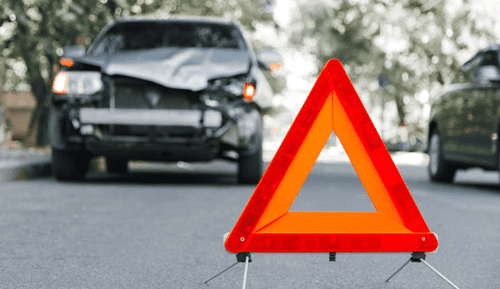- Need Any Help: +1 647-760-5505 or
- info@trubicars.ca

At Trubicars, we always emphasize to driving students how important it is to ensure that you are safe and responsible when operating a motorized vehicle. Driving a vehicle is a very serious thing, your attention should always remain on the task of driving and you should take every step possible to avoid distractions while you’re behind the wheel. Collisions can happen in the blink of an eye when you are not giving your full attention to driving.

Canadian Transportation Safety Board reported that there are 160,000 car accidents each year on Canadian roads. In 2020, Statistics Canada reported 1,745 motor vehicle fatalities, 7,868 serious injuries, and 101,572 total injuries. When operating a motorized vehicle, safety should always be a driver’s priority, however, unfortunately not too many drivers make this their priority. According to Statistics Canada, the top 4 contributing factors behind Fatal collisions include:

Distracted Driving involves any activity that takes your focus away from driving. Any activity that you engage in that takes your attention away from the road is considered Distracted Driving. When you are driving, you should be focused on the road ahead of you and your attention should never stray. There are many proactive steps you can take to ensure you are not driving distracted. If your phone is the biggest distraction, you can always turn your phone off or switch it to silent, you can ask a passenger to respond to any messages you might receive while driving, you can preselect and queue up your music before driving and you can always safely pull over to the side of the road to respond to any emergent notifications.
It’s imperative that you maintain the posted speed limits, as they are there for a reason. If you are driving at a high speed, you may find yourself unable to control your vehicle during an emergency and you may potentially turn any collision into a fatal one. You can avoid speeding by giving yourself time to arrive at your destination, paying attention to your speedometer, taking note of the speed limits on the roads you are driving on, considering how damaging a speeding ticket may be to your driving record, and don’t let other road users (or passengers) influence your driving.
Impaired driving means operating a vehicle while your ability to do so has been compromised by consuming alcohol, drugs (either cannabis, over-the-counter drugs, prescription medication, or illegal substances), or a combination of the above. You can avoid driving under the influence by assigning a designated driver, using public transport, calling a trusted friend or family member for a ride, using a ride share or taxi service, or staying overnight at your location.
Driving while fatigued can significantly diminish your ability to focus on the road. Your reaction time is slower, your decision-making abilities are altered, your ability to focus is harder to maintain, your depth perception is affected, and you can be more sensitive to light. You cannot trick your body into staying awake; sleep is important! You can avoid driving while fatigued by: Eating well and fuelling your body with the proper nutrients it needs for more sustained energy, taking a safe rest when needed, and letting someone else (who can) drive.

Driving is a privilege, NOT a right. At Trubicars, we recognize that driving is a big responsibility, and it is your duty as an operator of a motorized vehicle to ensure that you remain safe and responsible behind the wheel at all times. If you are looking for more information on the most common causes behind collisions and how to avoid them, check out the Trubicars website!

 February 13, 2024 by
February 13, 2024 by Reema Sharma
Reema Sharma
 January 17, 2024 by
January 17, 2024 by Trubicars
Trubicars
 January 17, 2024 by
January 17, 2024 by Trubicars
Trubicars
Once you acquire the knowledge provided in
those tests, you are ready to pass the
test,
the first time.
